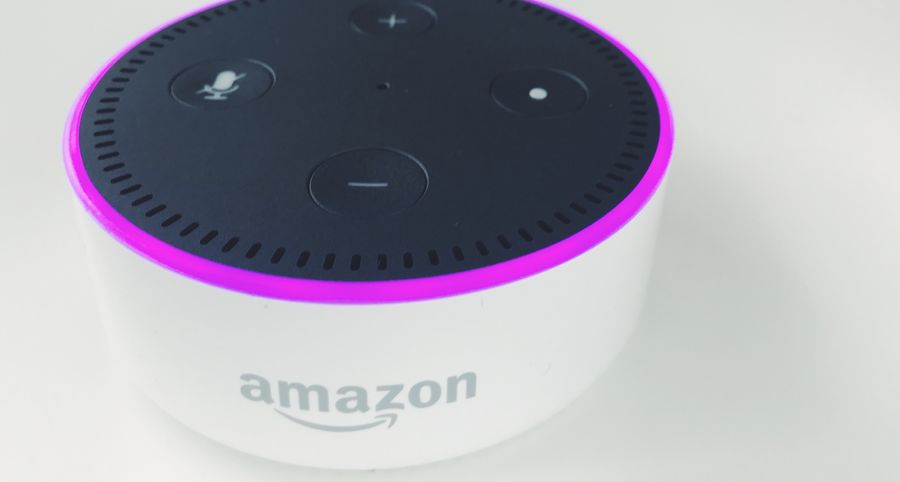
Many consumers are on the fence about purchasing a smart speaker. While the advent of smart technology and the interconnectivity of smart devices has led to increased use of smart speakers as a control module for smart home applications, other buyers are still cautious about switching to smart speakers.
So, are smart speakers actually worth it? The truth is that smart speakers can be great for those who already own other smart devices to enhance the effectiveness of their existing system, but for those who don’t already have smart technology integrated into their home and phone, a smart speaker doesn’t bring much extra to the table.
If you’re planning on turning your house into a smart home, smart speakers are the perfect foundation for your smart house control system. However, if you aren’t very invested and bringing lots of smart technology into your home, they may be a waste of money. Read on to find out more about how you can use smart speakers in your home and when they’re worth a buy.
What Are Smart Speakers Capable Of?
Smart speakers are a stereo system that differs from traditional speakers in a few different ways:
- Wireless, voice-activated controls: Hands-free voice controls are one of the biggest highlights of smart technology, and because of integrated data gathering, these kinds of applications become more and more sophisticated all the time.
- Audio input and audio output: In contrast to the boomboxes of old, smart speakers are not just capable of playing music. They’re capable of recognizing music or voice commands.
- Search engine: The personal assistant software on a smart speaker allows it to answer any question that can be reasonably answered via a search engine like Google, increasing the productivity of users by preventing them from having to stop a task in the middle of looking up a piece of data.
- Calling and messaging: Along with their function as a radio and a search engine, smart speakers can also act as a telephone to allow voice-activated calls, text messages, and voice messages. Users can not only leave messages for others, but they can also leave messages and reminders for themselves as well.
- Smart home command center: Smart speakers can be used as a primary form of controls for a smart house system as a way to combine the controls for a variety of different smart
home systems.
While they might be labeled as a speaker, smart speakers are multifunctional devices that are capable of many different tasks by using wireless internet as a source of informational control, a source of data, and a method of telecommunication.
How Do Smart Speakers Work?
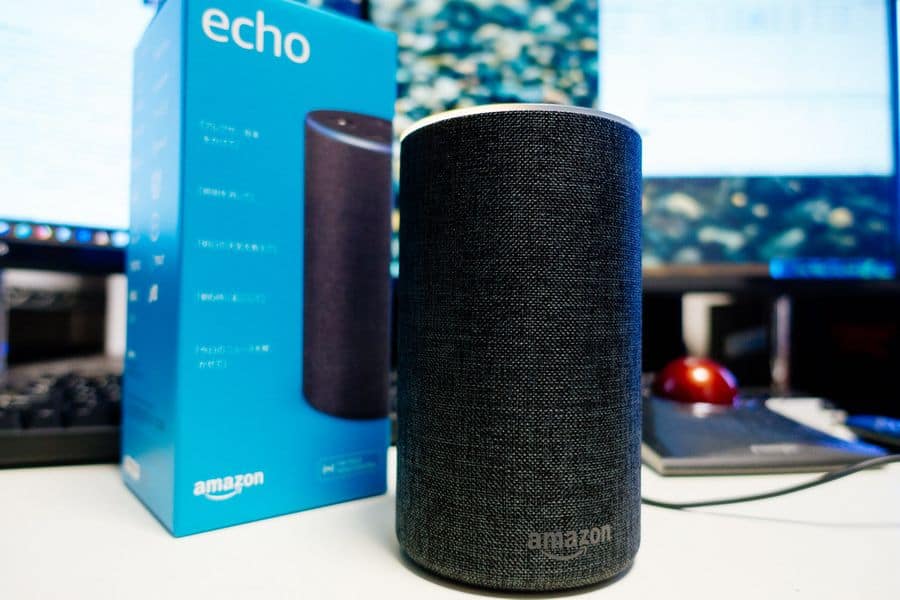
The basis of smart speaker technology (and of smart technology in general) is a wireless internet connection. By utilizing a series of interconnected apps, these smart devices can work together in a symbiotic system to act as tools that interact with the Internet of Things.
Here are some of the technologies incorporated into smart speakers that allow them to function:
- Audio input and output
- Voice-activated controls
- Audio-activated and ambient data collection for service refinement
- Interconnectivity via app software
The pervasive wireless internet capability that allows the technology in smart speakers to function is also its biggest downfall. Wireless internet is notoriously insecure, and the smart speakers currently on the market are heavily associated with the collection (and sale) of user information for corporate advertising purposes.
Smart Speakers and Privacy
One of the most significant issues keeping smart speakers from being a ubiquitous form of technology like smartphones is the fact that smart speakers are associated with mass surveillance technology. The technology that allows smart speakers to be so efficient in the home is also capable of facilitating an Orwellian level of data collection on the general populace without their knowledge.
While it is true that most of the data collected by smart devices is used for relatively innocent purposes such as targeted advertising, the potential for the technology to be abused by eavesdropping government officials (or even just clerks over at Amazon) makes many people suspicious of keeping a smart speaker in their homes.
Both Amazon and Google have admitted to recording and eavesdropping on consumers through their smart technology. In the wake of that knowledge, the fact that over half of potential buyers who don’t currently own a smart speaker have serious concerns over privacy issues with smart speakers doesn’t seem all that surprising.
Another severe potential privacy issue concerning smart speakers is the Children’s Online Privacy Protection Act (COPPA), which prevents data from being collected from children without parental consent. While smart speakers are not designed specifically to record children, they are also not equipped to discriminate on what audio data they record according to the age of the subject.
Smart Speakers and Product Ecosystems
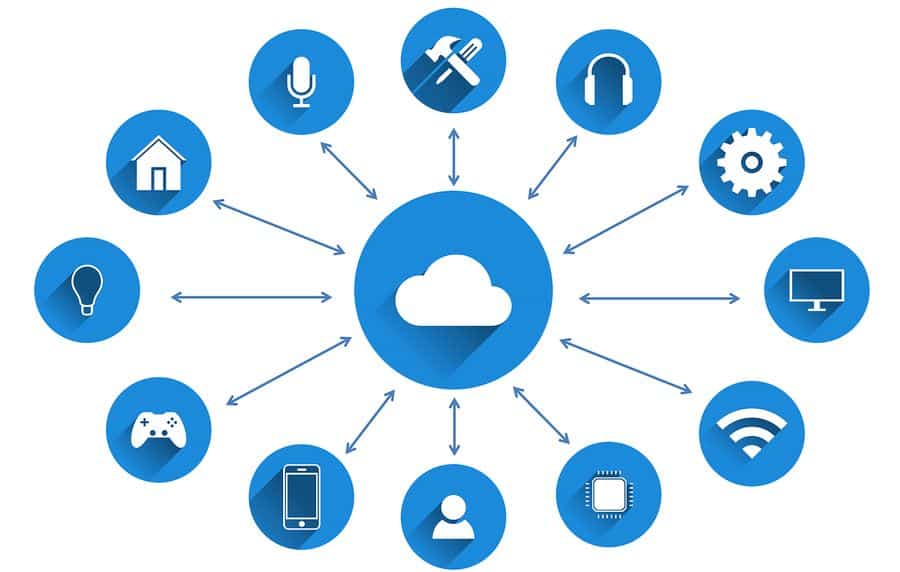
Most of the value in a smart speaker lies in its ability to integrate the rest of your smart devices and apps into a single system of voice-activated controls. If you’re trying to convert your home into a smart home, investing in a series of smart speakers can make it much easier to operate your home’s various smart systems.
While some consumer watchdogs complain that smart device ecosystems create a product monopoly where a person feels locked into a single brand for all of their electronics to optimize compatibility, by committing to a product ecosystem or brand allows a person who is using smart technology to get the most out of their smart devices by syncing them.
The concept of the Internet of Things is dependent on the various smart devices in a person’s home (smartphone, thermostat, security systems, etc.) being controlled and operated from an easy access point. For most people, this is either a smartphone app or the voice controls of their smart speaker.
A significant benefit of smart device systems is that they help to facilitate an off-the-cuff productivity style where you can notate a passing thought quickly before you lose track of it without having to write something down on a piece of paper or try to keep up with it. Instead, you can simply speak the thought as a memo to your smart speaker and have it record the memo to your phone to go over later. That is just one example of hundreds where a smart speaker can be used to streamline daily life.
Smart Speakers and Shopping
For people who don’t view shopping as a marathon sport, smart speakers can make the process of keeping a household stocked with necessities infinitely easier. Not only can your smart speaker (with app support) keep track of your regular grocery list, it can allow you to instantly order more of any item you’re out of with a simple voice command.
Smart speakers do make impulse purchases a little easier, but they make window shopping more accessible, too. Have a good idea for a gift and don’t want to forget it? Speak it out loud to your smart speaker and add it to a wish list, and you’ll have plenty of ideas stocked up for your next holiday.
Overall, smart speakers generally aren’t worth it just as an outlet for buying things. Most people prefer having some kind of screen available to preview the items that they’re trying to buy to prevent accidental purchases, which has led to the popularity of online shopping but has prevented smart speaker shopping from taking off.
One of the major hurdles with smart speakers and shopping other than the lack of a visual interface is the quality of the audio response system. Despite years on the market, many smart speakers still have difficulty recognizing even some simple commands, making more complex shopping orders through a smart speaker not worth the trouble.
The Best Smart Speakers
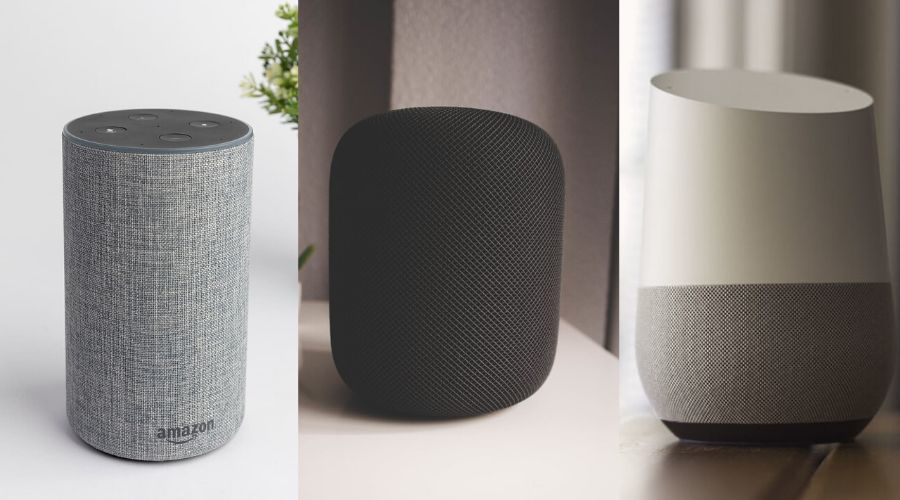
There are several smart speakers on the market, but a few of them are associated with a higher level of quality and brand recognition than the others.
Since smart speakers are a relatively new form of technology with their share of compatibility issues, choosing a standard brand of smart speaker, such as Amazon, Google, or Apple, can prevent you from ending up with a third-rate smart speaker that has no real app support.
Here are some of the best smart speakers you can get for your smart home:
All of these speakers have fantastic technical support and warranties, and they are also able to be connected to many related product lines that allow you to extend your smart home’s system to as many different aspects of your daily life as possible.
This not only helps you maximize your smart system’s efficiency, but it also helps you customize the smart home to suit your individual needs through software applications and the integration of other related smart devices that are brand compatible.
Which Other Smart Devices Can Be Connected to Smart Speakers?
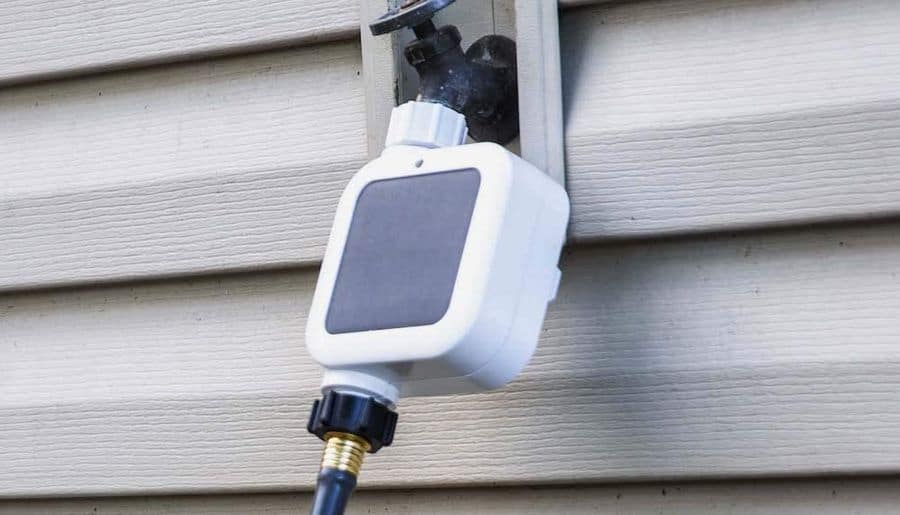
Even though smart speakers are capable of basic functions with wireless internet, the real value in smart speakers lies in their ability to act as a point of voice control for various other smart devices in the home. Here are some devices that can be controlled through a smart speaker to create a smart home system:
- Thermostats: Whether you’re regulating the temperature in the home or an outdoor greenhouse on the property, smart speakers and your smartphone can be used to adjust temperatures and monitor temperatures, like for this unit, even when you’re not on the property.
- Closed-circuit surveillance and security cameras: If you have a security camera system, smart speakers can be used to control your security system through voice controls. Smart speakers can also be used to record ambient conversations.
- Electronic exterior locks: Smart speakers can be used to unlock doors based on voice recognition software. This is especially convenient for homeowners who have a habit of losing their keys or don’t want to fumble for them in the dark.
- Gardening systems: Hose faucet timers, sprinkler systems, misters, and other irrigation systems can be linked into smart speakers and other smart software, allowing tech-savvy gardeners to tend to their crops and even monitor plants through hygrometers.
- Lighting systems: Smart speakers can be used to verbally control both exterior and interior lighting systems in the home, including this package, from simple light switches to specialized mood lighting through apps like Hue.
Since more and more technology is being integrated with smart technology and voice controls, the pool of gadgets that are compatible with smart speakers only continues to grow. This is not a fad piece of technology, but rather a core technology that is still in its developmental stages.
The uses of smart speakers in the construction of a smart house system are only limited by the homeowner’s imagination when it comes to visualizing their household needs and learning how to execute them through a verbal command and app combination system.
Personalizing Smart Speakers to Increase Their Worth
A major component of the worth of a smart speaker comes from how it is customized to the user’s specifications. Without being personalized for use, a smart speaker serves as a data collection point for advertising moguls. But in conjunction with smart device apps, a smart speaker can be used to make the most of a smart home system.
Customizing a smart speaker’s settings and apps to correspond to its owner’s lifestyle (similar to how laptops and smartphones get branded with their owners’ identities through use) increases the worth of the smart speaker on two different levels:
- Increased value to the owner: A smart speaker that is used regularly by a person as part of an extensive smart home system will provide lots of practical worth to the user since it will be well-integrated into their daily life.
- Increased value to the brand: Through data collected by smart speakers, corporations can collaborate more closely with marketing affiliates to target advertising directly at consumers based on their purchase histories and ambient audio cues in their environments. From a marketing standpoint, this makes the smart speaker much more valuable to the company that produced it and is using it for data collection.
Either way, the personalization of a smart speaker through regular use and the inclusion of auxiliary apps and software makes the smart speaker a more efficient piece of technology, since it is a piece of technology which is dependent on interconnectedness.
Smart Speakers and Data Tracking
Privacy issues aside, there are some advantages on the part of both consumer and company when it comes to data collection being used to refine advertising.
While this data collection leads to more effective advertising that is more likely to convince users to purchase by generating data-fed leads, this type of targeted advertising also leads to advertising that is more likely to advertise products the individual actually needs. So, it prevents the consumer from having their time and attention wasted on a product they would never be interested in.
Since the information being gathered by smart speakers for the corporations that produce them is rarely used for anything more malicious than an advertisement, the utility of smart speakers outweighs the downsides of owning one unless you take into account the data tracking that occurs through government entities.
Technically, companies like Google don’t disclose the data they collect except for legal reasons. Still, the problem is that governments and law enforcement regularly request collected data from these companies without the data’s owner ever knowing. When asked for a digital warrant, Google reportedly discloses 60-75% of its collected data to law enforcement without pushback.
Overall, the data collected by smart speaker companies is used for innocuous purposes. Here are some of the reasons data is collected or “eavesdropped” from smart speakers:
- To further the refinement of speaker-based services, such as improved voice recognition upgrades and better recognition of regional dialects and accents through individual analysis
- To map consumer demographics and trends to provide products that are better aligned with what consumers need and want
- To analyze consumer psychology and figure out what causes people to buy the things they buy
The makers of smart technology are not interested in your quirks, your secrets, or your private life. On the contrary, smart data collection is about figuring out what people want to buy, and easier ways to get them the things they want to buy. While this might sound a little self-serving, these same processes also help companies to serve the consumers who depend on them, their products, and their services.
Outside of aggregated numbers used to inform brand marketing teams and targeted digital advertising, Amazon and Google have little use for your personal data.
Smart Speakers and Cybersecurity

Concerns about cybersecurity and smart speakers are almost as prevalent about concerns about data collection. Unfortunately, these fears have some foundation in reality. Smart speakers operate on a wireless network, and wireless networks are notoriously easy to hack into. Even encrypted wireless connections are not a strong deterrent for anyone who has more than amateur hacking skills.
The good news is that most people are entirely too ordinary to be hacked and recorded. Unless you’re a spy or a government official, the chances of you having to worry about a hacker breaking into your smart speaker for the fun of it is so low you may as well not even concern yourself.
Another thing to take into consideration is the fact that you’re much more likely to have your computer or smartphone hacked than you are to have your smart speaker hacked, as your phone and computer are more likely to allow a hacker access to your checking account information. The remote chance of your smart speaker being hacked doesn’t detract from the worth of a smart speaker in the home.
The best way to prevent a hacking situation with any of your smart devices is to use strong passwords, change passwords often, and encrypt your wireless systems. There is also anti-hacking and anti-virus software that you can install on your smart devices to prevent them from being hijacked by a would-be hacker.
The threat of a smart speaker being hacked is relatively low in comparison to a device with a camera or access to complex user information, so it isn’t worth worrying about unless you conduct some seriously illegal business in your household.
Smart Ways to Use a Smart Speaker

As mentioned earlier, the best way to increase the worth of a smart speaker is to incorporate the speaker into your other smart devices as a voice control module. Here are some of the creative ways you can incorporate a smart speaker into a smart house system:
- Control your television through smart speaker integration with devices such as an Amazon Fire Stick.
- Set up a dazzling array of ambient mood lighting through a lighting setup like Philips Hue Lights that can be changed at a moment’s notice through voice controls.
- Program your smart speaker to start your day with a weather report and your to-do list from the night before.
- Set reminders for yourself and sync them to your smartphone calendar. Voice controls allow you to set reminders instantly rather than having to fumble for pen and paper.
- Check the tracking schedule of package delivery. This is an especially useful tool for home-based businesses.
- Order a pizza or a cab.
- Make shopping lists or purchases.
- Play trivia games or the radio.
- Give yourself a morning pep talk by recording it the night before.
This is just a handful of examples of ways that a smart speaker can be used to make your daily life more comfortable and efficient. Every day dozens of more apps and smart devices are launched that help further integrate smart home products to allow for a seamless smart technology experience from the moment you get up in the morning to the moment you lay your head down at night.
Smart Speakers and Responsiveness
So far, other than privacy concerns, the most prominent technical issues involving smart speakers involves their responsiveness to audio input. While data collection has been used to significantly refine the ability of smart speakers to listen to and interpret audio commands, smart speakers are still behind the curve when it comes to being able to recognize what is being said to them.
This leads to a high number of instances where smart speakers do not recognize commands or misinterpret the commands being spoken to them. These momentary glitches are only temporarily annoying for a casual smart speaker user, but they have also kept smart speakers from being broadly incorporated into daily consumer life.
As the Internet of Things, artificial intelligence, and smart technology all continue to advance at exponential rates, it stands to reason that this aspect of smart speaker technology will only become more refined and accurate as time goes on. But as things stand in 2020, the technology isn’t quite there when it comes to the audio input (though it grows closer by the day).
Ironically, the same data collection that is used to improve the functionality of smart speakers is also the same data collection that has detracted from their widespread use because of privacy concerns.
The Worth of Smart Speakers in Society
At this point in technological history, smart speakers are still more of a novelty than a necessity. Smart speakers aren’t necessary to operate the majority of smart technology (smartphone-based apps take that honor), and the technology used to run them isn’t refined enough that people are willing to trust in it as part of the mainstream culture quite yet.
For people who are trying to remain on the cusp of advancing technology or those who are putting together their best version of a makeshift smart home, smart speakers can be a terrific hands-off way of controlling your smart home’s regulatory systems without having to fiddle on your phone apps constantly.
For those who haven’t already invested in other smart device technology, smart speakers aren’t going to have much to offer. The worth of smart speakers is dependent on their role as a voice control conduit capable of communicating with all of your primary household systems. If you don’t have those systems set up to begin with, a smart speaker is just an overpriced speaker.
As the Internet of Things becomes more mainstream in modern society and smart technology becomes integrated into more and more devices, smart speakers and other household appliances with smart technology will become more commonplace and valuable. But for now, they remain little more than an expensive toy for gadget enthusiasts.
Are Smart Speakers Worth It? It Depends on How You Use Them
For people who are willing to commit to a particular brand of electronics to build up and invest in a product ecosystem for their home, smart speakers can provide a valuable point of input for controls and verbal commands directed at the smart home system. But as a standalone product, smart speakers lose most of their inherent value. While the speakers can be of excellent quality, it is better to save your money if you are buying them to use only as speakers.
Sources:
https://www.wired.co.uk/article/internet-of-things-what-is-explained-iot
https://www.ftc.gov/tips-advice/business-center/guidance/complying-coppa-frequently-asked-questions
https://techcrunch.com/2020/02/04/shopping-via-smart-speakers-is-not-taking-off-report-suggests/
